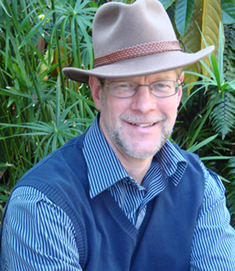Bruce KnauftSamuel Candler Dobbs Professor
Education
- PhD, University of Michigan, 1983
Research
Specializations
- Power, Practice, and Representation
- Engaged Anthropology
- History, Narrative, and Politics
- Underdevelopment and Development Anthropology
- Political economy -- global, regional, and local
- Gender and Sexuality
- Melanesia, West and East Africa, South Asia & the Himalayas, Inner Asia
Professor Knauft's research combines politico-economic and cultural analysis across different world areas. He is particularly interested in issues of collective and individual subjectivity in relation to structures of social inequality and political domination or disempowerment, both historically and in the present. Across geographic and temporal scales, Dr. Knauft has been concerned with the critical and comparative theorization of social and cultural responses to imperialism and neo-imperialism, on the one hand, and civil strife, on the other, including in circumstances of underdevelopment and responses to development schemes in different world areas. Dr. Knauft's publications have addressed issues of modernity and marginality, social and critical theory, politics and violence; and gender and sexuality.
For the past decade, Professor Knauft has conducted project work supported by the Ford Foundation and the Carnegie Corporation that investigates and practically brings together engaged scholars, civil society leaders, and policymakers across a range of developing countries in Africa and in Asia. He has directed the States at Regional Risk Project (SARR) and, currently, the Comparative Post-conflict Recovery Project (CPRP), both supported by the Carnegie Corporation of New York.
Originally trained as a cultural anthropologist, Dr. Knauft conducted two years of doctoral research among the Gebusi, a remote rainforest people of Papua New Guinea with whom he still maintains contact. During his twenty-one years at Emory, he has developed comparative interests and mentored student research across a broad range of world areas, topics, and disciplinary perspectives. In addition to Melanesia, he also has scholarly interest in West and East Africa and South and Inner Asia as well as other world areas.
